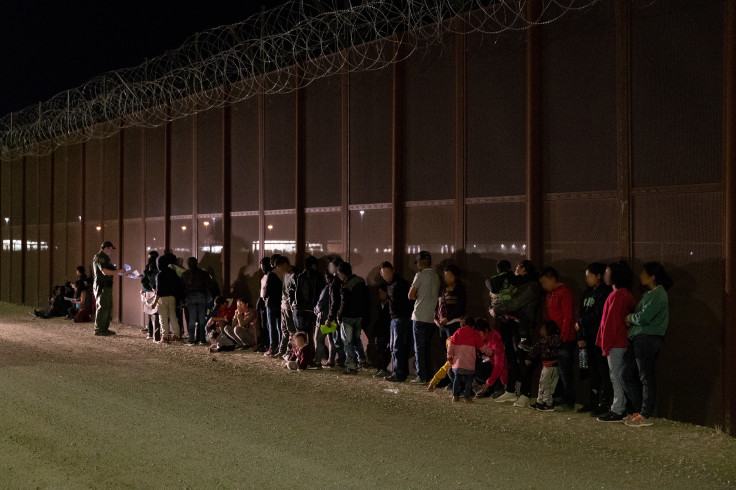
115,497 Mexican individuals in family units and accompanied minors crossed the southern border in 2023's fiscal year to date, marking unprecedented crossings.
U.S. Customs and Border Protection data, last updated August 18, 2023, shows the number of Mexican individuals in family units and accompanied minors who crossed the border this year at an all-time high, increasing about 73% compared to the same period last year.
U.S. Customs and Border Protection collects data for the fiscal year from October through September of the following year. The data they release tracks all the people who encountered border patrol agents or Office of Field Operations agents, both under U.S. Customs and Border Protection.
The data for the 2023 fiscal year-to-date is from October 2022 through September 2023 but has only been recorded up to July. In July 2022, the fiscal year-to-date data recorded that 31, Mexican individuals in family units and accompanied minors crossed the southern border, in contrast to that, the 2023 data exhibits a sharp increase in crossings with 115,497 Mexican individuals in family units and accompanied minors crossing the southern border up to July 2023.
2023 shows the most substantial increase of Mexican individuals in family units and accompanied minors crossing the border in recent years. Still, compared to previous years, this data shows a trend that could be attributed to Title 42 ending or many other factors.
Data up to July 2021 recorded 22,546 Mexican individuals in family units and accompanied minors crossing the southern border. This is 92,951 fewer people than 2023's data for the same time period, an about 80% increase. In 2020, the numbers were generally low, with some months seeing less than 1,000 Mexican individuals in family units and accompanied minors.
Why are more families crossing the border?
This could have resulted from the COVID-19 pandemic and the Donald Trump administration enacting Title 42, which is no longer active as of May 2023. Title 42 allowed the U.S. to reject any asylum seekers because the country they came from has a present communicable disease. According to the Washington Office on Latin America Director for Defense Oversight Adam Isacson, now that Title 42 is no longer active, he thinks that is partly why the U.S. sees an influx of Mexican individuals in family units and accompanied minors crossing the U.S. border.
Isacson said after Title 42 ended, the Biden administration enacted a rule saying if people cross the border unlawfully, they can deny them asylum if they didn't ask for asylum from a country they passed through before they arrived in the U.S. For example, a Colombian family who passed through Mexico before they got to the U.S.
"They are deporting a record number of people for this reason, but Mexicans don't pass through another country along the way," Isacson said. "In fact, they can argue they can't wait for an appointment at a port of entry because they have to go now because they live in the country where they're threatened." According to Isacson, this could be why the U.S. sees many Mexicans crossing the border, but families who cross are also motivated by a couple of different factors. Isacson said current Biden policy generally does not deport families with children and does not keep them in facilities as they do with single adults.
According to the data from the historical Immigration Court Backlog tool, currently, there are about 2 million pending cases. Because of this, families are generally kept for up to 72 hours, then released with an asylum court date in the city where they will reside. Isacson said these court dates can often be years in advance.
Because families won't be denied asylum, they most likely won't be kept in a detention facility, and the adults can apply for a work permit six months after applying for asylum, according to Isacson, This could be why there is such a high influx of Mexican families crossing the southern border.
"Your case can take years, so you're free to go," Isacson said. "You can apply for a work permit for six months, and that is a temporary way into the United States with a legal status."
© 2025 Latin Times. All rights reserved. Do not reproduce without permission.




